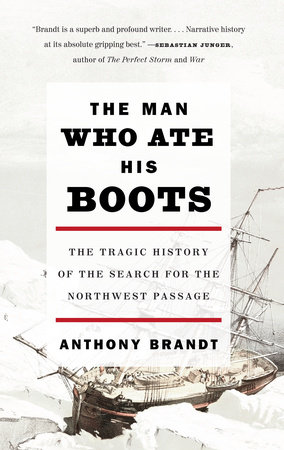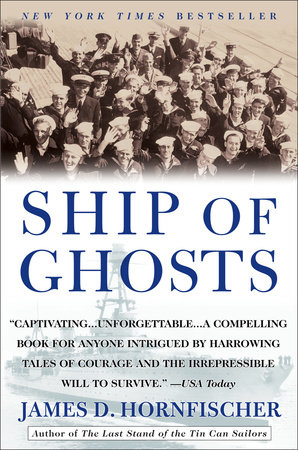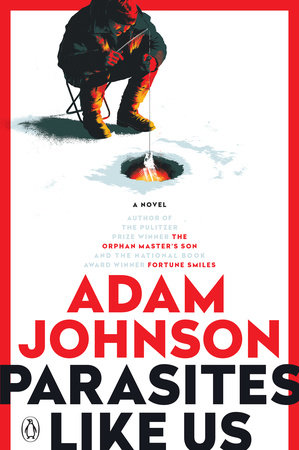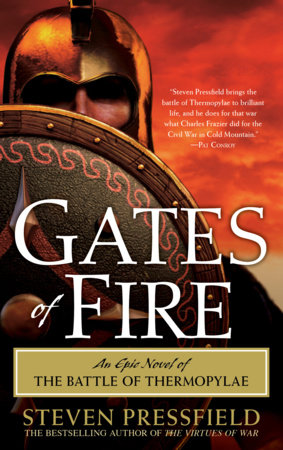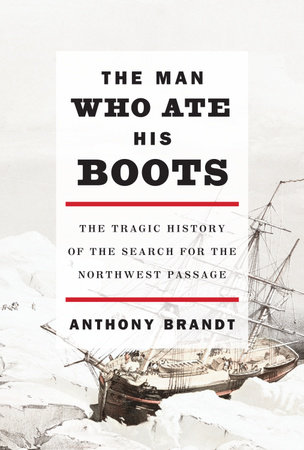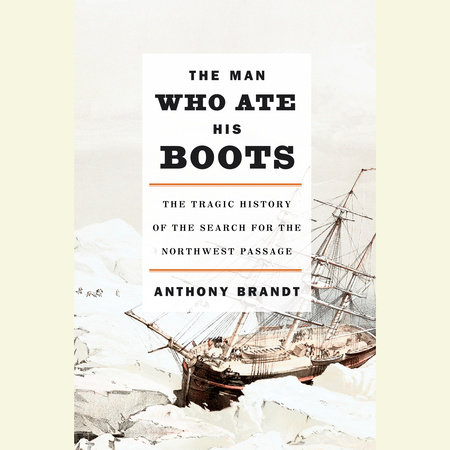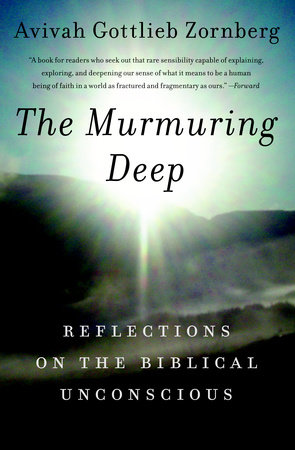Author Q&A
Q: In THE MAN WHO ATE HIS BOOTS you tell the rousing and often horrifying story of the search for the Northwest Passage, the holy grail of nineteenth century British exploration. Why did so many people invest such time, energy and effort in to this search?
A: There’s no simple answer. In part it had seemed since the sixteenth century—when the Spanish and the Portuguese were claiming all the easier routes to the Far East—like a peculiarly British mission to find this great unknown route to the East via the north; and after 1815, when the Napoleonic Wars ended with such a decisive British victory and the seas were theirs, the chance to use idle ships and idle seamen to find it became too attractive to resist. The British now thought they could do anything, no matter how difficult, especially at sea. But it was also to some degree the product of one man’s enthusiasm, and that was John Barrow, the powerful second secretary of the Admiralty, who believed in an open, i.e. unfrozen, polar sea; and he had an ally in the first lord of the Admiralty, the second Lord Melville, who supported the idea and was able to gather Parliamentary support. The British people were excited by the idea, too, and got behind it.
Q: Was the mission a fool’s errand?
A: It proved to be so, and there were skeptics from the beginning. But at the time the Arctic was completely unknown. The map was blank above 80 degrees north in all areas, and above 70 degrees north in most. Nobody knew what the Arctic Ocean was like, or whether there even was an Arctic Ocean for that matter. For all they knew Greenland might extend to Asia, and some mapmakers thought it did. Others firmly believed that salt water could not freeze. The Greenland whalers knew better, but they weren’t scientists, they were commercial fishermen, and men like Barrow paid no attention to them. They weren’t gentlemen. In retrospect, then, it certainly seems like a fool’s errand, but life does not happen in retrospect, and what seems foolish now seemed like a noble effort at the time.
Q: Your title refers to John Franklin’s 1819 failed expedition where 11 of the 20 men in the exploration party died of starvation and the survivors were forced to eat their boots! Franklin’s expedition is perhaps the most famous, but there were dozens of missions sent to the Arctic in the first half of the nineteenth century, one failure after another. Each of the commanding officers felt as if he was prepared for the journey ahead so what was it that doomed these expeditions to failure and death?
A: The Arctic is intractable. No amount of preparation can ensure a person’s safety in an environment full of so much risk. The margin of survival is extremely narrow in the Arctic, and even small mistakes—the loss of a glove; forgetting to bring sun glasses; the sudden collapse of an ice floe—can kill you, and in a very short time. More of Franklin’s men might have survived in 1821 if he had turned back a week earlier, or even a few days. To survive in the Arctic, one must be very bold; one must also be very cautious.
Q: John Franklin’s final journey in search of the passage ended in cannibalism. Many people will be shocked at the concept of crew members eating one another, but describe for us the conditions these explorers faced.
A: Franklin’s men had food for three years, most of it salt meat, dried soups, tea, chocolate, grains, and hardtack, the biscuit only a sailor could love. After three years of exploring—two of them stranded in ice that ran up to thirty or forty feet thick in some places—it was obvious they weren’t going anywhere, the food was running out, and none of it was fresh anyway. Almost all the survivors to that point must have been suffering from scurvy, a debilitating disease that eats away the body’s connective tissue and is fatal soon enough. No one then knew its cause. Fresh food cures it, but in the middle of a frozen ocean fresh food is rare. Seals, mostly, if you knew how to catch them. When the survivors set out on foot for civilization, a thousand miles away, they would have been exhausted, desperate, starving, very weak, and very cold. Who’s to judge them for trying to survive, once their companions started to die, with the only food available? It was called, at the time, the custom of the sea, and it was not uncommon. Herman Melville certainly knew of instances of it; so did every seaman.
Q: You say, “Great Britain’s Arctic explorers sailed eagerly into the bitter seas of the far North, testing themselves against the deadliest climate in the world, in the service of something they believed in. The conclusion was tragic, but tragedy gives depth and meaning to death. Where would mankind be if it did not take risks? If it were not proud?” What has been the legacy of these explorers? Should we remember them as heroes?
A: Hero is a word that makes me uneasy. One man’s hero is another’s devil. There are multiple sides to every story. I prefer the word courageous. Parry, Franklin, the two Rosses: whatever one thinks of the project they were engaged on, there can be no question of their courage. One holds one’s breath as Lt. Parry picks his way between the ice and the shoreline, half blinded by fog sometimes, hoping the wind doesn’t shift and trap him between an ice floe perfectly capable of turning his ship into splinters and a shoreline composed of solid rock. These men were often religious, and one can’t help but think that they would almost have to be, to do what they did.
Q: In THE MAN WHO ATE HIS BOOTS, you focus on the British explorers who searched for the Northwest Passage from 1818-1880. Where do these explorers fit in to the history of Arctic Exploration?
A. To a substantial degree they are the history of Arctic exploration. When they began in 1818 the Arctic was almost completely unknown. By the time they finished, the map of the western Arctic, above North America, was nearly complete. Attempts to reach the North Pole followed and it was attained, perhaps in 1909, when both Peary and Cook claimed it, although the claims are still challenged; but the British were the real pioneers, and whatever the costs in human life, their achievement was considerable.
Q: In your research, did you travel to the Arctic?
A: I hoped to be able to, but it didn’t happen. I’m not sure it would have been helpful in any case. I was writing a general history covering a multitude of expeditions over the course of three centuries, and it was the expedition accounts that formed my basic sources. I could imagine the cold well enough.
Q: You are the editor of the “Adventure Classics” series published by National Geographic Society Press. Some of the books you’ve edited include, “The Tragic History of the Sea: Shipwrecks from the Bible to Titanic” and “South Pole: A Narrative History of Exploration of Antarctica”. What is it about naval history that fascinates you?
A: All history fascinates me. But I’m drawn to the sea, having spent all my summers when I was young in a cottage on the Jersey Shore; I grew up knowing how to swim and sail, I had my first boat when I was nine, my first sailboat at eleven, and I was winning sailing trophies soon thereafter. It gets in your blood. I’m drawn to tragedy, too, because I think it comes the closest of all the ways of understanding human life to the way things are—to reality. And I’ve always wanted to live as much as possible without too many illusions.
Q: THE MAN WHO ATE HIS BOOTS is full of eccentric characters, many of whom bicker with each other in highly entertaining public battles. If you had to pick one, which historical character was most fun for you to bring to life?
A: I suppose egotistical, cranky, battleworn, and almost always wrong John Ross was my favorite sailor on this trip. For me he gave the stereotype of the British eccentric new levels of meaning, and it was always fun to watch him mess things up. The fact that he had once been run through with a bayonet added a bit of spice to his character, and his pamphlet wars with various enemies were always entertaining. But for sheer love I’ll opt for Lady Jane, John Franklin’s wife and one of the most extraordinary women of her time, surely the most intrepid woman traveler of the first half of the nineteenth century. I keep hoping someone will write a new biography of her. I got carried away a few times and devoted too much space to her and had to cut back. I think the memorial to her husband in Westminster Abbey should really be a memorial to her.
Q: Thanks to global warming, in the summer of 2007, the Northwest Passage opened to ship traffic. What can you tell us about the future of the Northwest Passage?
A: I wish I knew, so that I could invest in it. But, joking aside, the Passage was open in 2007 and 2008, but not in 2009. I doubt that it will be open reliably every summer for a while, perhaps a decade. But inevitably, if warming continues at the present rate, I don’t see how it won’t open every summer by 2020, and that will cut thousands of miles off the present sea routes to the Pacific from the Atlantic, and vice versa, reducing costs for shippers all over the world. Is this a good thing? Obviously, only in the short term, and only for shippers—and possibly oil and natural gas producers, if they find as much oil and natural gas as they think exists in the Arctic Basin. Already the Northwest Passage is a tourist attraction of sorts, and a Russian icebreaker makes the trip every summer with paying passengers. Maybe they’ll take me along on one of these trips. I’d like to see it, if I can sleep in a warm cabin and eat good food while I’m there.
